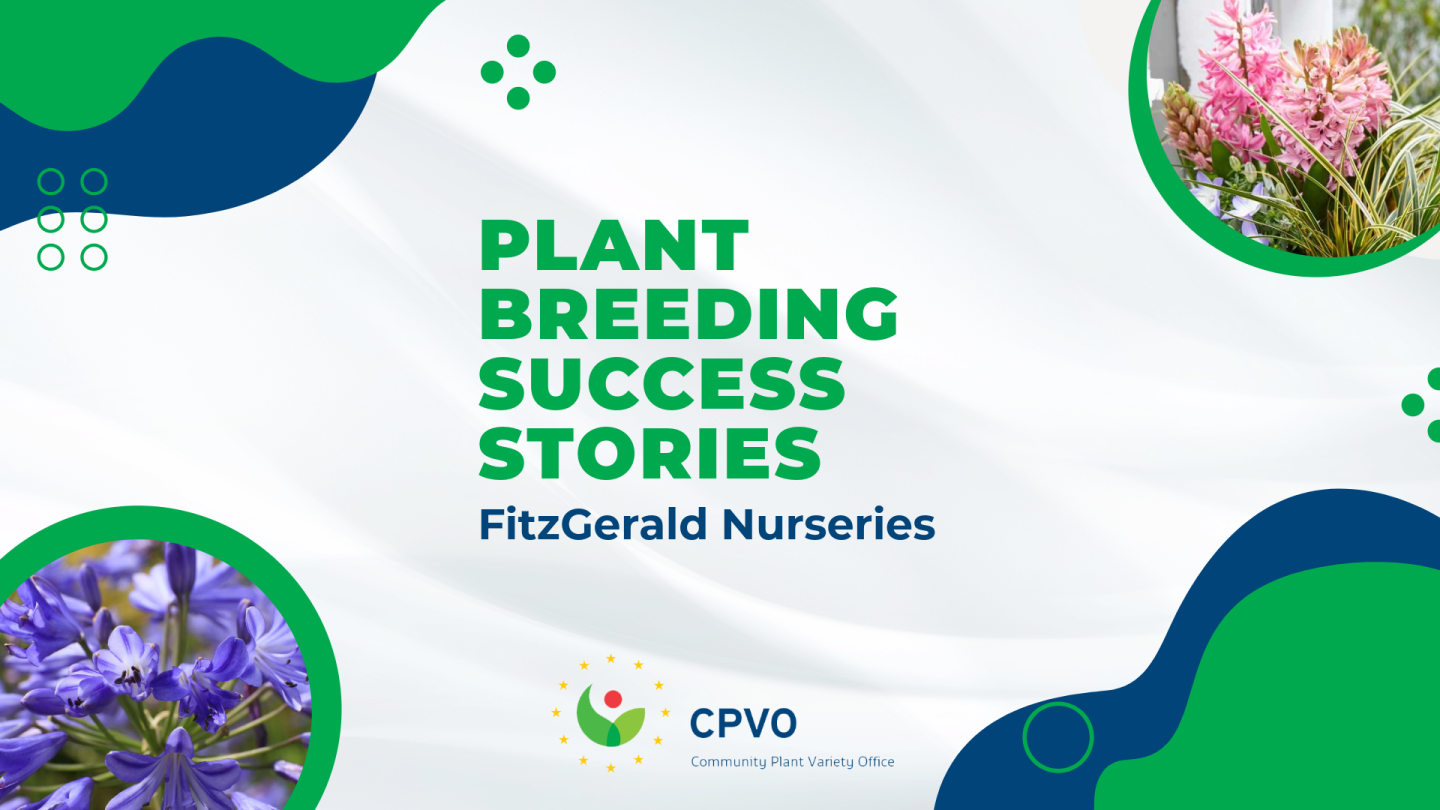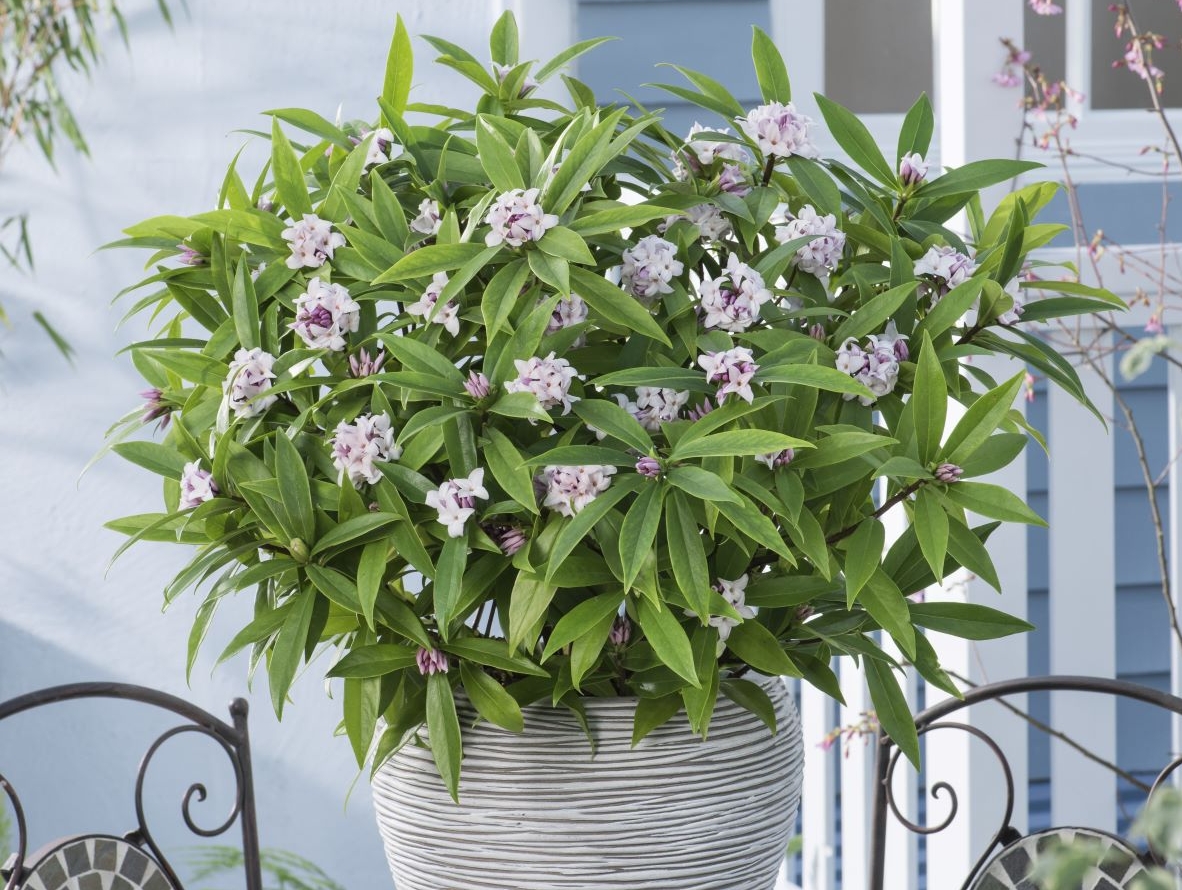
Welcome back to our 'Plant Breeding Success Stories', where we share interviews from SMEs across the Plant Breeding sector. In the second part of this interview, we're chatting with FitzGerald Nurseries, an Irish company based in Stonyford, Kilkenny. The first part of this interview can be found here.
CPVO: Can you provide examples of how PVRs have helped Beotanics compete in the market against larger players?
FitzGerald Nurseries: Beotanics is thriving thanks to the protection granted by PVRs. It has 20 years of experience and breeder networks and gets to specialize and also has protection of the exclusive licensing on these varieties it enjoys. For Beotanics our whole value chain and business model relies on PVR to a large degree but also because of PVRs we have some hope of monetizing open varieties also. FitzGerald equally to Nativland benefits across a whole spectrum of varieties you can see here.
CPVO: How do PVRs level the playing field between SMEs and large corporations in the breeding industry?
FitzGerald Nurseries: The formation and funding of Nativaland itself serve as clear evidence of how PVRs can drive innovation and attract financial confidence from investors. When we expanded into Portugal, the investment was possible because PVRs protected us from immediate imitation by competitors. Without this protection, investments in breeding, optimizing production and applying new variety techniques would not be feasible for a small or medium-sized enterprise (SME).
For Beotanics, PVRs have provided an added benefit by proving that a farm-based SME can defend itself and confidently invest in multiple crop opportunities. This has been critical in allowing us to explore and develop various crop options, including our eight-year effort to establish a European variety base for Wasabi, which now fuels growth in processing and other opportunities.
Beotanics Group has demonstrated how strategic use of IP can empower an SME to thrive. Our success is no accident but the result of deliberate design, reinforced by IP opportunities and extensive background knowledge. Our teams can proceed with confidence, knowing that our work is professionally managed and protected by strong IP rights.
PVRs reward SMEs for their energy, imagination, and generational knowledge. Farming is tough, and PVRs provide the protection needed for our life's work to sustain us and motivate us to improve life for everyone. Without protecting our work, society would be poorer, and food security would be at risk as young people flee farming.

CPVO: What are the long-term benefits of PVRs for the agricultural sector?
FitzGerald Nurseries: The long-term benefits of PVRs for the agricultural sector are substantial and multifaceted.
Firstly, PVRs help us keep pace with climate change by encouraging the development of resilient crop varieties. They also promote a more diverse and imaginative breeder base beyond corporate entities, fostering innovation from smaller, independent breeders. This diversification is crucial as it reduces reliance on GMOs, providing more choices for those who prefer non-GMO products.
PVRs also play a vital role in delivering food nutrients and biodiversity on a local scale. Since breeding needs are highly localized, having a variety of breeders working on different crops can address specific local challenges more effectively. Ultimately, human survival depends on the continuous development of pest, climate, and disease-resistant plants. Those who push the boundaries in achieving these advancements are essential for maintaining and improving our quality of life. While the structure of society might change in the future, the current system highlights the importance of protecting the work and innovations of plant breeders through PVRs.
CPVO: How do you see the future of the breeding industry evolving with strong PVR protections, technological advancements, and regulatory changes?
FitzGerald Nurseries: I believe the EU needs to reassess its current understanding and regulatory frameworks, moving away from a one-size-fits-all strategy. While it's beyond my capacity to influence policymakers directly, we need an EU commissioner or a high-level body to step up, eliminate the unnecessary complexity, and provide clear leadership. The way crops like sweetpotato are currently handled exemplifies the fact that there is room for improvement in the system. illustrates the inefficiencies in the system.
The EU needs to move past its inward focus and address its narrow crop reliance, regulatory confusion, and CAP supports that hinder the development of new crops. Once these issues are addressed, we can better focus on technological advancements. The technology exists, but it's not being applied effectively due to the existing regulatory framework. To put it simply, you can't eat soup with a fork.

CPVO: I see that your reach is worldwide. Could you provide further information on this aspect of your business?
FitzGerald Nurseries: While Beotanics does have a global reach, it's important to remember that we are still a very small company. This global presence has been achieved through personal dedication, the strong support of intellectual property rights, and the understanding and support of my wife, who knows this is my life's work. Additionally, I am fortunate to have a team of committed staff who believe in our mission.
Our progress has been challenging, often hindered by general issues within EU strategic leadership, which lacks alignment from top to bottom. Despite these obstacles, I am optimistic about the future. Recent years have shown some improvement, and balance of academic and practical, farmer-based insights is crucial for making informed and effective decisions.
Learn more about FitzGerald Nurseries here.
